Today, August 15, we celebrate the feast day of Saint Maximilian Mary Kolbe (1894-1941), martyr of the faith, and founder of the Militia of the Immaculata, a group devoted and consecrated to Our Blessed Mother. During his life, Saint Maximilian founded and grew the largest religious community in Europe, assisting those in need, speaking out against the tyranny of war, and aiding thousands of Jews escape persecution during the Second World War. His commitment to the rights and dignity of all, as filtered through his zeal for the Lord and devotion to Mary, allowed him to achieve great works while alive, and the crown of martyrdom in death.
In the words of John Paul II, “Maximilian prepared for this definitive sacrifice by following Christ from the first years of his life in Poland. From these years comes the mysterious vision of two crowns – one white and one red. From these our saint does not choose. He accepts them both. From the years of his youth, in fact, Maximilian was filled with great love of Christ and the desire for martyrdom.”
Born into a poor family in Russian-occupied Poland in 1894, Raymond (his given name) was a boisterous and difficult child. His mother famously—in exasperation—asked of him, “what is going to become of you?” Raymond’s life changed dramatically around the age of 12 when, when he made his First Holy Communion at the Church of the Assumption of Mary. At that time, the young boy was graced with a vision of the Blessed Virgin Mary which was to change his life. In recounting the vision, Raymond said:
“I asked the Mother of God what was to become of me. Then she came to me holding two crowns, one white, the other red. She asked if I was willing to accept either of these crowns. The white one meant that I should persevere in purity, and the red that I should become a martyr. I said that I would accept them both.”
His mother, in her memoirs, wrote of the event:
"I knew ahead of time, based on an extraordinary event that took place in his infancy, that Maximilian would die a martyr. I just don't recall if it took place before or after his first confession. Once I did not like one of his pranks and I reproached him for it: ‘My son, what ever will become of you?!’ Later, I did not think of it again, but I noticed that the boy had changed so radically, he was hardly recognizable. We had a small altar hidden between two dressers before which he used to often retire without being noticed and he would pray there crying. In general, he had a conduct superior to his age, always recollected and serious and when he prayed he would burst into tears. I was worried, thinking he had some sort of illness so I asked him: ‘Is there anything wrong? You should share everything with your mommy!’ Trembling with emotion and with his eyes flooded in tears, he shared: ‘Mama, when you reproached me, I pleaded with the Blessed Mother to tell me what would become of me. At Church I did the same; I prayed the same thing again. So then the Blessed Mother appeared to me holding in her hands two crowns: one white the other red. She looked at me with tenderness and asked me if I wanted these two crowns. The white one signified that I would preserve my purity and the red that I would be a martyr. I answered that I accepted them...(both of them). Then the Virgin Mary looked at me with sweetness and disappeared.’ The extraordinary change in the boys' behavior testified to me the truth of what he related. He was fully conscious and as he spoke to me, with his face radiating; it showed me his desire to die a martyr.”
At age 13, Raymond and his elder brother illegally crossed the border so that they could enter the Franciscan Fathers Seminary in the polish city of Lvov, which was at that time occupied by Austria. There he took the name Maximilian Maria, to demonstrate his love and devotion to the Blessed Mother. He traveled to Krakow and Rome, continuing his studies, earning a doctorate in theology. He completed his religious studies in Rome, and was ordained a priest at age 24.
During his time in Rome, Maximilian witnessed increased opposition to papal authority, and various attacks on the Church from both within and without. Devoted to the Immaculate Conception, he believed that the Church should be more militant in its cooperation with Divine Grace for the advancement of the Catholic Faith. Moved by this devotion and conviction, in 1917 he founded a movement called, "The Militia of the Immaculata" whose members consecrated themselves to the Blessed Virgin Mary and whose purpose would be to fight, through all the morally valid means available, for the building of the Reign of God in the whole world. In his own words, the movement would have "a global vision of catholic life under a new form that consists in a union with the Immaculata.” The means of consecration was accomplished through the Immaculata Prayer, penned by the saint.
The Immaculata friars utilized the most modern printing and administrative techniques in publishing catechetical and devotional tracts, a daily newspaper with a circulation of 230,000 and a monthly magazine, named “Knight of the Immaculata” with a circulation of over one million. This magazine was oriented to promote knowledge, love, and service to the Blessed Mother in the conversion of souls.
Following his ordination, Maximilian returned to a now liberated Poland, and founded the monastery of Niepokalanów near Warsaw, a seminary, a radio station and several other organizations and publications. Niepokalanów became the largest religious community of its time—with nearly 800 brothers living in a “city of the Immaculata.” The monastery and seminary were joined with homes for the poor and sick, a hospital, living quarters, radio station, printing presses and distribution centers, and stores. Among the inhabitants of Niepokalanów were doctors, dentists, farmers, mechanics, tailors, builders, printers, gardeners, shoemakers, cooks. The “city” was entirely self-supporting. Through their work, the people of Poland were converted to Catholicism. Years later, after the war, the Polish bishops sent an official letter to the Holy See claiming that Father Kolbe's magazine had prepared the Polish nation to endure and survive the horrors of the war that was soon to follow.
Saint Maximilian was not content to build only one city for Mary, however. In 1931, after the Pope solicited missionaries, he offered himself as a volunteer to travel to Japan where he founded a new city of the Immaculata ("Mugenzai No Sono") and published in Japanese the magazine, "Knight of the Immaculata" ("Seibo No Kishi"). He further founded a monastery at the outskirts of Nagasaki, which remains prominent in the Roman Catholic Church in Japan. Built on the “wrong side” of a mountain, according to Shinto beliefs, the monastery miraculously survived the atomic bomb blast which devastated Nagasaki during the Second World War. Had he built the monastery on the preferred side of mountain as he was advised, his work and all of his fellow monks would have been destroyed.
Having contracted Tuberculosis as a child, Maximilian was frequently sick as he grew older. His already frail constitution weakened and he was frequently racked by violent headaches and covered with abscesses. He bore his suffering with patient endurance, but could not remain quiet about the approaching war in Europe. He became active as a radio amateur, with Polish call letters SP3RN, vilifying Nazi activities through his reports. The many publications of the Immaculata also spoke out against war and the growing disrespect for human dignity.
When the Germans invaded Poland in September of 1939, Father Kolbe realized that his monastery—like everything else-- would soon be taken over. He sent most of the friars home, warning them not to join the underground resistance, but to preserve their lives for God. Niepokalanów was ransacked, including the monastery where he lived, and Maximilian, accompanied by 40 other friars, were transported to a holding camp in Germany, and later to one in Poland. He is remembered as having said at the moment of arrest: “Courage, my sons. Don’t you see that we are leaving on a mission? They pay our fare in the bargain. What a piece of good luck! The thing to do now is to pray well in order to win as many souls as possible. Let us, then, tell the Blessed Virgin that we are content, and that she can do with us anything she wishes”
The friars were released and allowed to return to the monastery in December of 1939. Niepokalanów became a refugee camp for thousands of Poles and Jews seeking escape from Nazi persecution. The friars shared everything they had with the refugees and the monastery became a universal shelter of brotherhood. For this reason, Father Kolbe and his friars soon came under suspicion by the Gestapo. Furthermore, German citizenship had been extended to Maximilian—as a journalist, publisher, and intellectual of advanced degree. However, he had declined to accept the offer, which infuriated German authorities and roused their suspicions further. To incriminate him, he was permitted one final printing of the "Knight of Mary Immaculate" in December of 1940. It was in this issue that Father Maximilian wrote:
“The real conflict is inner conflict. Beyond armies of occupation and the catacombs of concentration camps, there are two irreconcilable enemies in the depth of every soul: good and evil, sin and love. And what use are victories on the battle-field if we ourselves are defeated in our innermost personal selves?”
Two months later, in February 2941, Father Kolbe was again arrested—this time on charges of aiding Jews and participating in the Polish underground which stood in resistance to the Nazi regime. Maximilian was sent to the infamous Pawiak prison in German-occupied Warsaw, and subsequently to Auschwitz. There, he was given the prison number 16670, and was singled out for special ill treatment.
On June 15, 1941, he managed to write a letter to his mother, which was smuggled out of the camp. It read:
"Dear Mama, At the end of the month of May I was transferred to the camp of Auschwitz. Everything is well in my regard. Be tranquil about me and about my health, because the good God is everywhere and provides for everything with love. It would be well that you do not write to me until you will have received other news from me, because I do not know how long I will stay here. Cordial greetings and kisses, affectionately. Raymond."
During his time at Auschwitz, Saint Maximilian remained true in his devotion to Our Blessed Mother, doing all that he could to ease the burdens, struggles, and suffering of his fellow prisoners. At night, he moved from bunk to bunk, saying: "I am a Catholic priest. Can I do anything for you?" A prisoner later recalled how he and several other men often crawled across the floor at night to be near the bed of Father Kolbe, to make their confessions and ask for consolation. Father Kolbe pleaded with his fellow prisoners to forgive their persecutors and to overcome evil with good. When he was beaten by the guards, he never cried out. Instead, he prayed for his tormentors.
At that time, to discourage escapes, the guards at Auschwitz had a rule that if a man escaped (or attempted to escape), ten men would be killed in retaliation. In July 1941, a man from Kolbe's bunker was believed to have escaped (although it was later discovered that he had drowned in one of the camp latrines). Ten men were selected to die in the most horrific manner—the ten would be placed in a “starvation chamber” where they would suffer without food or drink for two weeks. At the end of that time, if any survived, they would be executed by having carbolic acid injected into their veins.
One of the ten men selected, Franciszek Gajowniczek, sobbed upon being pulled out of formation: "My poor wife. My poor children - what will they do?" Maximilian stepped silently forward, took off his cap, and standing before the commandant, said, "I am a Catholic priest. Let me take his place. I am old. He has a wife and children."
The Nazi commandant asked, "What does this Polish pig want?"
Father Kolbe pointed with his hand to the condemned Franciszek Gajowniczek and repeated "I am a Catholic priest from Poland; I would like to take his place, because he has a wife and children."
Mr. Gajowniczek would later recall:
"I could only thank him with my eyes. I was stunned and could hardly grasp what was going on. The immensity of it: I, the condemned, am to live and someone else willingly and voluntarily offers his life for me - a stranger. Is this some dream?
I was put back into my place without having had time to say anything to Maximilian Kolbe. I was saved. And I owe to him the fact that I could tell you all this. The news quickly spread all round the camp. It was the first and the last time that such an incident happened in the whole history of Auschwitz.
For a long time I felt remorse when I thought of Maximilian. By allowing myself to be saved, I had signed his death warrant. But now, on reflection, I understood that a man like him could not have done otherwise. Perhaps he thought that as a priest his place was beside the condemned men to help them keep hope. In fact he was with them to the to the last.'”
Father Kolbe, along with the other victims, were left to starve in Building 13. Maximilian Kolbe encouraged the others with prayers, psalms, and meditations on the Passion of Christ. After the two weeks, only four remained alive. The cell was needed for more victims so the camp executioner came in and injected a lethal dose of carbolic acid into the left arm of each of the four dying men. Kolbe was the only one still fully conscious. With a prayer on his lips, the last prisoner raised his arm for the executioner.
Bruno Borgowiec, a fellow prisoner assigned to give services to that bunker, gave a personal testimony about Maximilian Kolbe’s death to his parish priest before he died in 1947:
"The ten condemned to death went through terrible days. From the underground cell in which they were shut up there continually arose the echo of prayers and canticles. The man in-charge of emptying the buckets of urine found them always empty. Thirst drove the prisoners to drink the contents. Since they had grown very weak, prayers were now only whispered. At every inspection, when almost all the others were now lying on the floor, Father Kolbe was seen kneeling or standing in the center as he looked cheerfully in the face of the SS men. Father Kolbe never asked for anything and did not complain, rather he encouraged the others, saying that the fugitive might be found and then they would all be freed. One of the SS guards remarked: ‘this priest is really a great man. We have never seen anyone like him.’ Two weeks passed in this way. Meanwhile one after another they died, until only Father Kolbe was left. This the authorities felt was too long. The cell was needed for new victims. So one day they brought in the head of the sick-quarters, a German named Bock, who gave Father Kolbe an injection of carbolic acid in the vein of his left arm. Father Kolbe, with a prayer on his lips, himself gave his arm to the executioner. Unable to watch this I left under the pretext of work to be done. Immediately after the SS men had left I returned to the cell, where I found Father Kolbe leaning in a sitting position against the back wall with his eyes open and his head drooping sideways. His face was calm and radiant."
Father Maximilian Mary Kolbe was 47 years old when he was executed, on the vigil of the Feast of the Assumption of Our Lady. His body was burned in the crematorium on the following day, the Feast of the Assumption. He had stated years earlier: “I would like to be reduced to ashes for the cause of the Immaculata, and may this dust be carried over the whole world, so that nothing would remain.”
Pope John Paul II, in his homily at the canonization of Maximilian Mary Kolbe, proclaimed the character and steadfastness of a man who believed in the supreme value of every human life:
“’Greater Love has no man than this that a man lay down his life for his friends.’ (John 15:13). From today on, the Church desires to address as “Saint” a man who was granted the grace of carrying out these words of the Redeemer in an absolutely literal manner.” For towards the end of July, 1941, when the camp commander ordered the prisoners destined to die of starvation to fall in line, this man-Maximilian Mary Kolbe spontaneously came forward and declared himself ready to go to death in the place of one of them. This readiness was accepted and, after more than two weeks of torment caused by starvation, Father Maximilian’s life was ended with a lethal injection on August 14, 1941.”
The life and works of Saint Maximilian Mary Kolbe are hard to imagine. His suffering and death are remarkable, and impossible to comprehend. They seem as events of the distant past, when in fact these things happened only 70 years ago. Since that time, genocide and other forms of disrespect for the dignity of human lives have continued unabated across the world. Saint Maximilian found his strength through devotion and consecration to Our Blessed Mother—the refuge of sinners, advocate for mankind, mediatrix of grace, and co-redemptrix of the world. Through his love for Mary, he urged aggressive promotion of the love of Christ on earth, to build a kingdom of God. We each are called to action, to confront the evils of the world, and to stand up for the dignity and respect of every human life!
Selected Quotations from Saint Maximilian Mary Kolbe:
"God sends to us the one who personifies his love: Mary, the spouse of the Spirit - a spirit of maternal love - immaculate, all beautiful, spotless, even though she is our sister, a true daughter of the human race."
"Sanctity is not a luxury but it is an obligation, and is not difficult."
“The most deadly poison of our times is indifference. And this happens, although the praise of God should know no limits. Let us strive, therefore, to praise Him to the greatest extent of our powers.”
“For Jesus Christ I am prepared to suffer still more.”
“No one in the world can change truth. What we can do and should do is seek it and serve it when it is found."
"God dwells in our midst, in the Blessed Sacrament of the altar."
"He remains among us until the end of the world. He dwells on so many altars, though so often offended and profaned."
"The culmination of the Mass is not the consecration, but Communion."
"You come to me and unite Yourself intimately to me under the form of nourishment. Your Blood now runs in mine, Your Soul, Incarnate God, co penetrates mine, giving courage and support. What miracles! Who would have ever imagined such!"
"If angels could be jealous of men, they would be so for one reason: Holy Communion."
Gracious God, you filled your priest and martyr, Saint Maximilian Kolbe, with zeal for souls and love for his neighbor. Through the prayer of this devoted servant of Mary Immaculate, grant that in our efforts to serve others for your glory we too may become like Christ your Son, who loved his own in the world even to the end, and now lives and reigns with you and the Holy Spirit, one God, for ever and ever. Amen.
Year 2: Day 226 of 365
Prayer Intentions: Respect for the dignity of all human life.
Requested Intentions: For personal family intentions, for the sick, poor, hungry, and homeless (G); Financial security and peace (J); Grace, peace, and obedience to the will of God in a marriage (H); Successful and blessed marriage for sin, freedom from anxiety for husband, spiritual contentedness for family (N); Employment and health for a husband (B); Recovery and health of a mother (J); For a family to grow closer to the Church, salvation for all children (D); Successful employment (L); Successful employment (S); Renewal of faith life (A); Support for an intended marriage, health for friend and aunt (J); Mental health assistance for son (G); Freedom from illness (S); Successful employment (C); Financial assistance and employment (B); For a family’s intentions (T); Successful examination results (B); Healing of a friend with cancer, for all those who help others (B); Healing and love (L); Grace and healing (V); Healing of a heart, consecration of a marriage (M); Health of a family, intentions of apostolate (H); For repentance (J); For a family in trouble (R); Healing, successful relationships for son, financial success (J); Success of a company (L); For a religious society (J); Healing of a husband, strength as a faithful caregiver (D); Healing of a son (T); Financial security, Healing and guidance (M); Healing of a heart and relationship (V); Employment for daughter (J); For a marriage that glorifies the Lord (K); Resolution of family situation, parents’ health (A); Positive results (C); For a son’s employment, faith, and relationships (S).


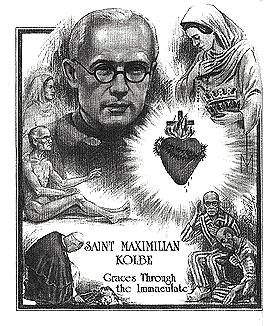



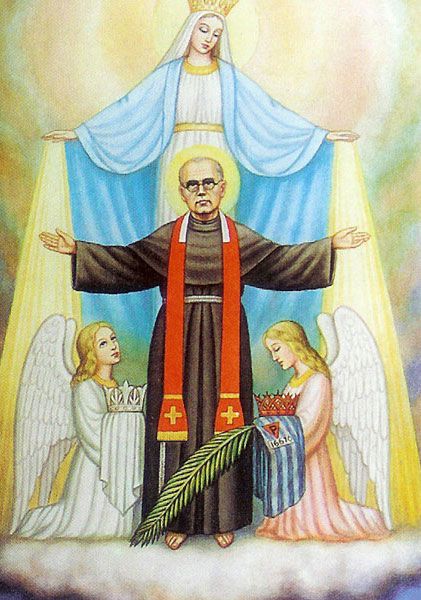






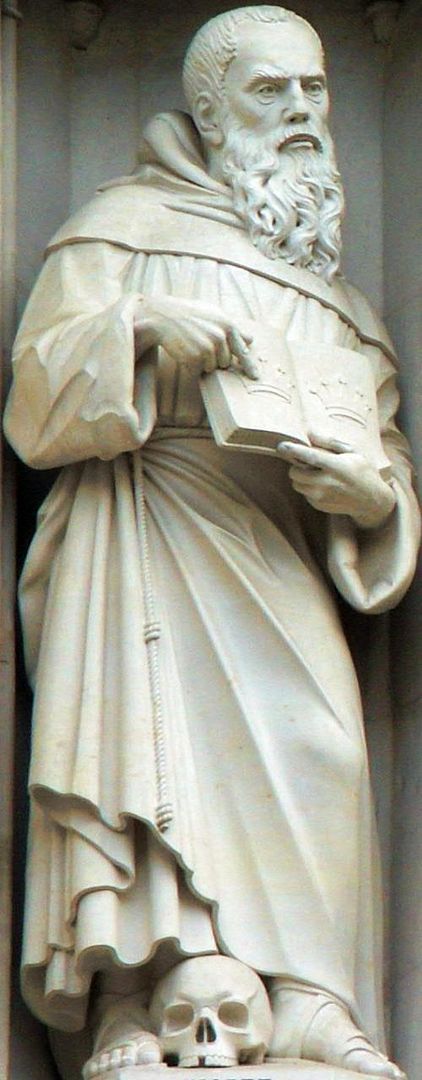


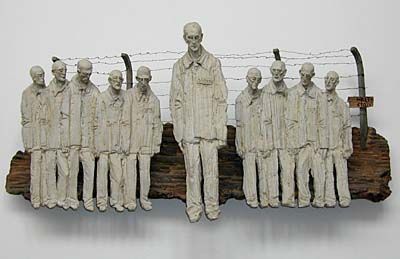
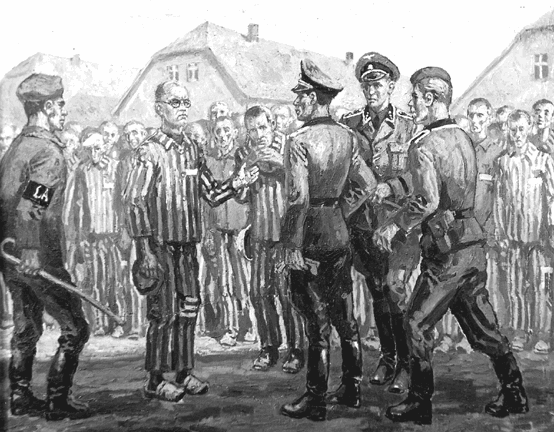








please pray for financial help on the mortages on our house. thank you.
ReplyDelete